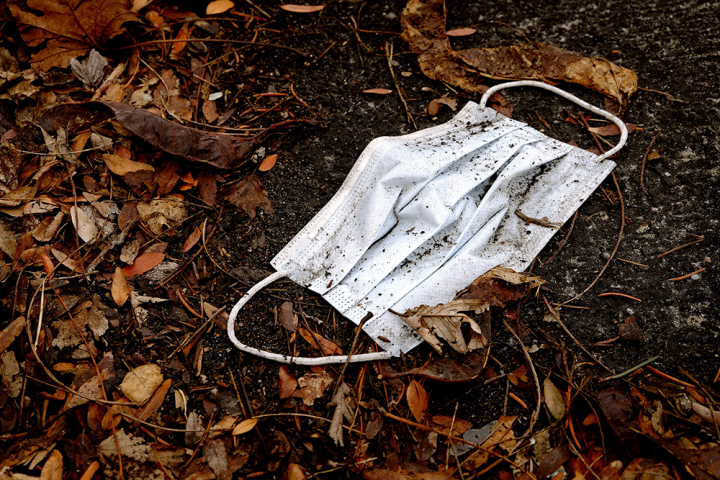“Anti-Covid masks are perfectly recyclable if they are decontaminated properly first!”

For several months now, the international media has been shining the spotlight on the Plaxtil phenomenon, the first company in the world to recycle masks. What is your method?
We did not decide to recycle masks overnight. We already have much experience in recycling modern textiles made from synthetic fibres.
What is that experience?
It has already been a while now! I run another company specialising in plastic injection moulding which has been in existence for almost 30 years. As polymer professionals, we asked ourselves whether it would make sense to find a way to recycle end-of-life clothing. It is important to know that despite the large number of clothing collection points, only a tiny amount of that clothing is reused.
|
Only 30% is used by certain charity shops or second-hand shops, 20% is recycled as rags, and the rest is simply destroyed, usually by incineration. All the same, this accounts for nearly 100 million tonnes per year! It is not only a waste, but also a disaster in terms of the environment! We therefore looked for a way to convert the clothing into a raw material, starting from the premise that these textiles could be incorporated into other polymers to form a new material that is infinitely recyclable and reusable.
|

|
Were you able to achieve that?
Yes, but it wasn't that simple. A lot of trial and error was involved! Our good knowledge of polymers was very useful. As I was saying, the idea was to combine a virgin polymer with fibres from previously ground clothing. We decided not to worry about their initial composition: polyamide, polyester, cotton, etc. Starting in 2017, we tested several recipes by incorporating up to 50% textile fibres in virgin resin. That said, cotton and synthetic garments must still be separated because, for reasons of final quality, it is not possible to mix both cotton and synthetic fibres with virgin polymer. Then comes our manufacturing secret.

|
I can only say that we tested just about every polymer family before arriving at the right result. The technical challenge was to make the textile fibres transformed into beads or compounds injectable. Our secret is therefore based on the grinding and preparation of the textile to bond it to the polymer as well as the configuration of the injection moulding machines. It's as simple as that. |
What applications do you foresee for this new polymer?
We believe in the virtuous circle of the circular economy and especially in short circuits. Environmental protection is a holistic process; recycling plastics and other materials is just one facet of it. Sending end-of-life plastics to China to be recycled and then bringing them back home to give them a new life makes absolutely no sense at all. We are looking to organise a form of circular economy in our region first and foremost. Textiles are collected in collection points by Audacie, a local structure fostering social integration through economic activity. We transform the textiles and then make new objects out of them.

|
To make the economy truly circular, we are currently trying to convince a major player in the ready-to-wear industry to entrust us with the manufacture of its hangers and other objects linked to its business. Of course, these objects would be made from the company’s used clothes and it goes without saying that the hangers would only be destined for shops close to their place of production.
|
Is the same process used for anti-Covid masks?
More or less, because one must recall that masks are above all made of polypropylene fibres, a well-known and perfectly recyclable polymer.
We continue to apply our philosophy of the circular economy and we use the polymer from the masks to make door openers, visor structures and masks. In short, objects related to Covid. We have already recycled more than 50,000 masks!

To support the circular economy, the recycled masks are converted into door openers and visor structures. |
Several reasons led us to attempt to recycle them. Firstly, because we have a real know-how in textile recycling, but also because we could not stand the sight of these masks "lying around" on the pavement. We also felt that it was certainly possible to give them a second life. We consider it crucial to give serious consideration to the end of life of each product manufactured in large quantities, which is currently the case for masks. Finally, we believe that leaving a mask lying around could endanger the health of others.
Speaking of that, we thought recycling them would be impossible. Isn't it dangerous?
It could be, but we have taken all the necessary measures. The thirty or so collection points are equipped with a sealing system that is as simple to operate as it is effective. Once they are delivered to us, the bags are quarantined. Then, once crushed, the masks pass through a disinfection tunnel and are thoroughly decontaminated by a very short wavelength ultraviolet light. These UV rays destroy viruses and germs, but are harmless to us.
Everyone is talking about you. How do you see the future?
We were even visited by Japanese television! We are overwhelmed by the demand but we have absolutely no intention of recycling masks from all over the world, nor those from regions other than our own. On the other hand, we are ready to "export" our method on the condition that it is implemented within the framework of a local circular economy. In other words, if you are looking to do some greenwashing, please do not contact us.





